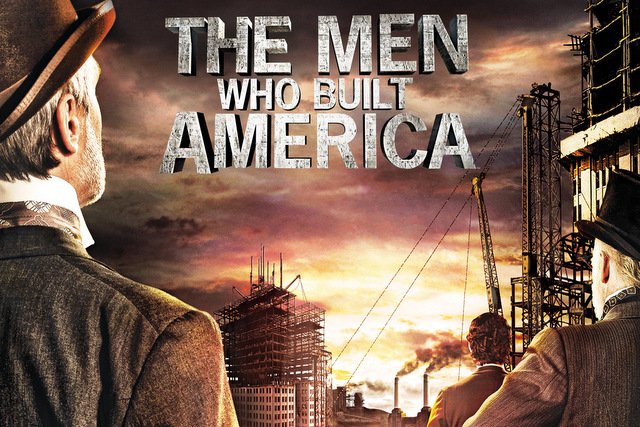
At Fueled, we believe that inspiration can come from the strangest places. But it can also be found exactly where you might expect it. If you’re an entrepreneur, who better to learn from than the enterprising men who brought prosperity to the United States? The Men Who Built America is a history docudrama, spanning eight hours and four parts, and it might teach you a few things about how to bring your ideas from conception to execution.
The series focuses on the five men who transformed America after the Civil War. John D Rockefeller, Cornelius Vanderbilt, Andrew Carnegie, Henry Ford and J. P. Morgan together created the American Dream and drove capitalism to the center stage of contemporary culture. Everything they touched seemed to be transformed into immense wealth, but these men were self-starters. It was their courage and cunning that led to their success.
What can you learn from these men?
John D. Rockefeller, for instance, went from being the son of a philandering vagabond to being “the richest person in history.” Even as a child, he showed some entrepreneurial skill by selling potatoes and candy and even lending money to his neighbors with interest. In his career, Rockefeller played safe to begin with, ensuring he had solid foundations before taking any risks. As the founder of Standard Oil, he built a monopoly on oil refining and marketing in the United States. Most importantly, he also came to define modern philanthropy, using his wealth to help set up hospitals and schools and fund research that eventually led to the eradication of hookworm and yellow fever.
Andrew Carnegie made his money through the railroads and steel and perhaps most perfectly embodies the rags-to-riches story of success. He was an activist, scholar and philanthropist and proclaimed in one article that the rich should use their wealth to improve society.
The show explains that while each of these five men contributed immeasurably to the development of the U.S., they are not without their critics.
J.P. Morgan, for example, is praised for his dedication to efficiency and commitment to modernization, which transformed business practices. He is also criticized for his dominance in corporations. He financed major newspapers, oil companies, railroads and almost every other industry intrinsic to American development. Similarly, each of these men also sought to control politics by the power they wielded in business. With such influence, they could buy politicians and lead with fear.
Every budding entrepreneur should learn from these greats. While nepotism and corruption should be out of the cards, there is still a lot more that you can learn from these fearless historical figures. These men saw opportunities and went after them, regardless of what hurdles were placed in their track. They also understood when to single-handedly steer operations and when to delegate responsibilities to others. The Men Who Built America dramatizes a fascinating period of American history when there was everything to play for and men who were not afraid to play big.
If you’re an entrepreneur, which character do you relate the most to?
This article was written by the editors at Fueled and is reprinted by permission.



